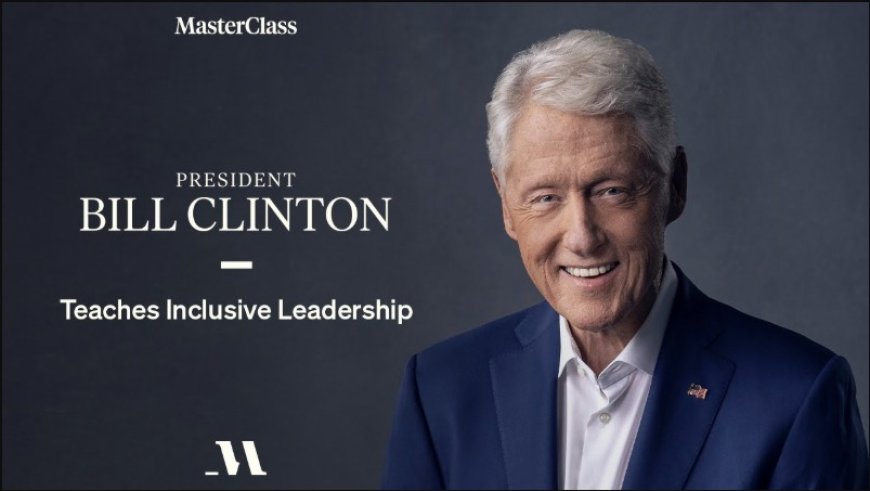Bill Clinton: A Legacy of Reform, Controversy, and Global Influence

Introduction
William Jefferson Clinton, commonly known as Bill Clinton, served as the 42nd President of the United States from 1993 to 2001. A charismatic and skilled communicator, Clinton oversaw one of the most prosperous periods in recent American history. His presidency was marked by economic growth, welfare reform, a balanced federal budget, and efforts toward global diplomacy. However, his administration was also marred by political scandals, most notably the Monica Lewinsky affair, which led to his impeachment by the House of Representatives in 1998.
This article provides an in-depth look at Clinton's early life, presidency, post-office career, controversies, and legacy. It also presents key facts and a summary of major milestones in list and table formats.
Early Life and Political Rise
Education and Early Political Career
Bill Clinton was born on August 19, 1946, in Hope, Arkansas. Raised by his mother and stepfather, Clinton showed early signs of leadership. He graduated from Georgetown University, won a Rhodes Scholarship to study at Oxford, and later earned a law degree from Yale University, where he met his future wife, Hillary Rodham.
Clinton launched his political career in Arkansas, becoming the state's Attorney General in 1977 and then its youngest Governor in 1978. Although he lost re-election in 1980, he regained the office in 1982 and served until 1992, focusing on education and economic reform.
Presidency: 1993–2001
Domestic Policy and Economic Success
Clinton’s presidency coincided with a period of rapid economic expansion. He implemented fiscal policies that helped eliminate the federal deficit and eventually created budget surpluses.
Key initiatives included:
-
The Omnibus Budget Reconciliation Act of 1993, which raised taxes on the wealthiest Americans.
-
The Welfare Reform Act of 1996, ending decades-old welfare entitlements and introducing work requirements.
-
Expansion of healthcare access through the State Children’s Health Insurance Program (SCHIP).
He also signed the North American Free Trade Agreement (NAFTA), which reduced trade barriers among the U.S., Canada, and Mexico.
Foreign Policy Achievements
Clinton’s foreign policy focused on diplomacy, multilateralism, and global trade. Notable efforts include:
-
Intervention in the Bosnian War, leading to the Dayton Accords.
-
A NATO bombing campaign during the Kosovo War.
-
Efforts to broker peace between Israel and Palestine, though ultimately unsuccessful.
Impeachment and Scandal
In 1998, Clinton was impeached by the House of Representatives on charges of perjury and obstruction of justice related to a sexual relationship with White House intern Monica Lewinsky. He was acquitted by the Senate in 1999 and completed his term with high approval ratings.
Post-Presidency and Legacy
Humanitarian Work and The Clinton Foundation
After leaving office, Clinton remained active in public life, founding the Clinton Foundation, which focuses on global health, climate change, and economic development. His humanitarian efforts, especially in Haiti and Africa, have been widely praised.
Influence on American Politics
Clinton remains a significant figure in Democratic Party politics, actively supporting candidates and advocating centrist, pragmatic approaches to governance. His legacy continues to influence political discourse, particularly through the careers of Hillary Clinton and other protégés.
Key Facts About Bill Clinton
| Category | Details |
|---|---|
| Full Name | William Jefferson Clinton |
| Date of Birth | August 19, 1946 |
| Birthplace | Hope, Arkansas, USA |
| Education | Georgetown University, Oxford University (Rhodes Scholar), Yale Law School |
| Presidency | 42nd U.S. President (1993–2001) |
| Political Party | Democratic Party |
| Vice President | Al Gore |
| Notable Achievements | NAFTA, Budget Surplus, Welfare Reform, SCHIP, Crime Bill |
| Impeachment | 1998 (acquitted in 1999) |
| Post-Presidency Work | Founder of Clinton Foundation, Public Speaking, Humanitarianism |
Major Accomplishments and Controversies
Top Accomplishments:
-
Oversaw the longest peacetime economic expansion in U.S. history.
-
Balanced the federal budget and achieved budget surpluses.
-
Passed landmark welfare reform legislation.
-
Expanded healthcare access for children through SCHIP.
-
Promoted global diplomacy, particularly in the Balkans and Middle East.
Key Controversies:
-
The Monica Lewinsky scandal and subsequent impeachment.
-
Criticism of NAFTA’s impact on American jobs.
-
Use of executive clemency for controversial figures in his final days in office.
-
Handling of the Rwandan Genocide, where the U.S. was criticized for inaction.
-
Influence and fundraising practices of the Clinton Foundation.
Conclusion
Bill Clinton remains one of the most consequential and polarizing figures in modern American history. His presidency brought economic prosperity, social reform, and global engagement, all while navigating the challenges of intense political scrutiny and scandal. Though his impeachment stained his record, he left office with strong public support and has continued to wield influence on the world stage through philanthropic efforts. Whether admired for his policy acumen or criticized for personal failings, Clinton’s impact on the United States—and global affairs—is undeniable.




























